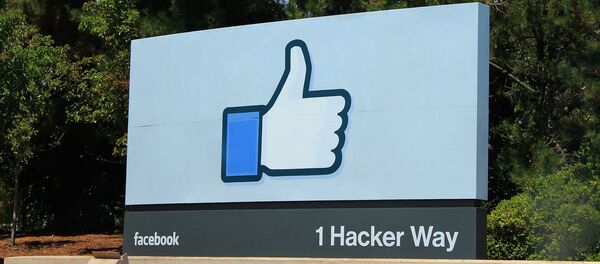The article "Venezuela is not alone" ran in the January 25 edition of Granma, the daily newspaper of the Cuban Communist Party, but by February 3, Facebook users wishing to share the story on the social media site found themselves strangely unable to do so.


When they attempted to link to the news story, Facebook reportedly blocked others from seeing the post, claiming it "violates community standards."
Facebook is continuing to stand with the US war machine by blocking a post from Cuba’s Granma news service about Venezuela.
— Chris Garaffa (@cmg) February 4, 2019
Apparently international solidarity violates “community standards.”https://t.co/NiwecHaSsE@CubaVenezCte pic.twitter.com/csznlDXOIT
As news spread about the apparent ban, users improvised novel ways of sharing the story, from rehosting it on a new platform and then sharing that link to typing out the contents of the article in full and sharing the post:
When this article went to publication, Facebook had not responded to Sputnik's requests for comment on the issue.
Only days ago, Twitter announced it had removed 1,960 accounts from its platform as a result of a joint operation with Facebook to track down accounts they claimed were engaged in "manipulation of information for national or geopolitical ends."
The accounts are split into two groups, Sputnik reported: 764 accounts for which Twitter is "unable to definitively tie the accounts located in Venezuela to information operations of a foreign government against another country," and 1,196 accounts "which appear to be engaged in a state-backed influence campaign targeting domestic audiences."
Facebook noted that the two companies partnered with the Digital Forensics Research Laboratory — the cyber arm of the neoconservative Atlantic Council, a DC-based think tank funded by defense giants — Gulf monarchies like Saudi Arabia, and NATO, MintPress News reported. The person responsible for overseeing this operation on Facebook's end was Nathaniel Gleicher, a senior associate at the hawkish foreign policy think tank Center for Strategic and International Studies (CSIS), which is, in turn, funded by many of the same actors as the Atlantic Council.
In addition, Venezuela-based news outlet TeleSUR, along with Sputnik News Agency, have been denied press credentials for the Lima Group meeting taking place in Ottawa, Canada, on Monday. TeleSUR was given no explanation, but Sputnik was told it "hasn't been cordial" with Canadian Minister of Foreign Affairs Chrystia Freeland in the past. The Lima Group of 14 US-aligned nations in the Western hemisphere was established in 2017 to essentially force regime change in Venezuela. On the other hand, both TeleSUR and Sputnik — and few other media organizations — have given airtime and column inches to narratives of Venezuelans who support Maduro and published material that includes criticisms of the situation and the narrative touted by Washington. Increasingly, it seems, that's cause enough to be blacklisted.



